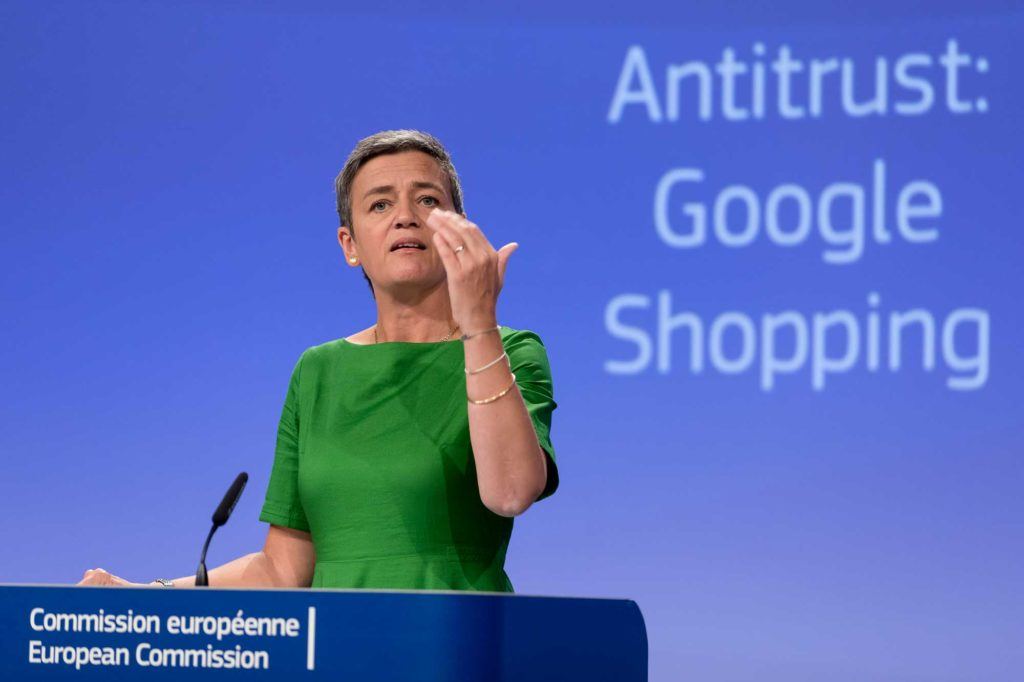Market stalls
UnHerd will soon be launching its technology theme with an in depth look at Zuckerberg for America. A presidential run by the Facebook founder and CEO feels an almost inevitable next step for someone already so central to the lives of millions of Americans (eight in ten online adults use his social network1). Certainly, he has the name recognition. My colleague Nigel Cameron, however, thinks a presidential bid might just be an overreach for the 33-year-old. Then again, overreach is now a defining feature of the tech giants, with predatory behaviour at the heart of it. Something that Zuckerberg’s potential presidential rival, Democrat Senator Elizabeth Warren, has been vocal about.2
In 2014 Mark Zuckerberg argued that “every 10 or 15 years there’s a new major computing platform”. “History” he said:3
“suggests that there will be more platforms to come and that whoever builds and defines these, will not only shape all the experiences that our industry builds, but will also benefit financially and strategically.”
Tech entrepreneurs rightly extol the virtues of such disruption – from social to sharing platforms, technology has transformed our lives (and most industries). But the sheer scale of today’s tech giants means that, while the barriers to entry for digital start-ups is low, the promising companies are frequently lured off the road to maturity. Indeed, what Zuckerberg should have said was, ‘every 10 or 15 years there’s a new major platform, and Facebook will use its vast wealth to buy up new companies that threaten to disrupt us’. His actual words were, after all, uttered at Facebook’s announcement that it was purchasing Oculus, a start-up (less than two years old) making virtual-reality goggles, for $2 billion in cash and stock.4
I’ve written about the aggressive acquisition strategies of the tech giants before – comparing their monopolistic behaviour to the robber barons of the ‘gilded age’. This predatory behaviour is restricting the battle for dominance, in both existing and evolving markets, to the giants. Tech titans like Zuckerberg might like us to think there is a long line of Davids, fine-tuning their start-up weapons in their parents’ garage, but the reality is Goliath versus Goliath. Paula Dwyer, writing for Bloomberg, captures it well:5
“Google often says competition is ‘one click away.’ And since consumers prefer their platforms over others’, why punish success? But when a cool innovation pops up, the superstars either acquire it or clone it. According to data compiled by Bloomberg, Alphabet, Amazon, Apple, Facebook, and Microsoft made 436 acquisitions worth $131 billion over the last decade.”
To put it in perspective, in the first half of 2016 alone, according to The Wall Street Journal, while the merger and acquisitions market generally was slowing, tech acquisitions were booming – with $260 billion of deals globally.6
Dwyer goes on to quip that despite the big five’s buying binge, “Antitrust cops made nary a peep.” And therein lies the problem, and one people are increasingly highlighting: by using their huge cash piles to snap up innovative start-ups, the giants are stopping the competition from ever really becoming competition.

 Main Edition
Main Edition US
US FR
FR






Join the discussion
Join like minded readers that support our journalism by becoming a paid subscriber
To join the discussion in the comments, become a paid subscriber.
Join like minded readers that support our journalism, read unlimited articles and enjoy other subscriber-only benefits.
Subscribe